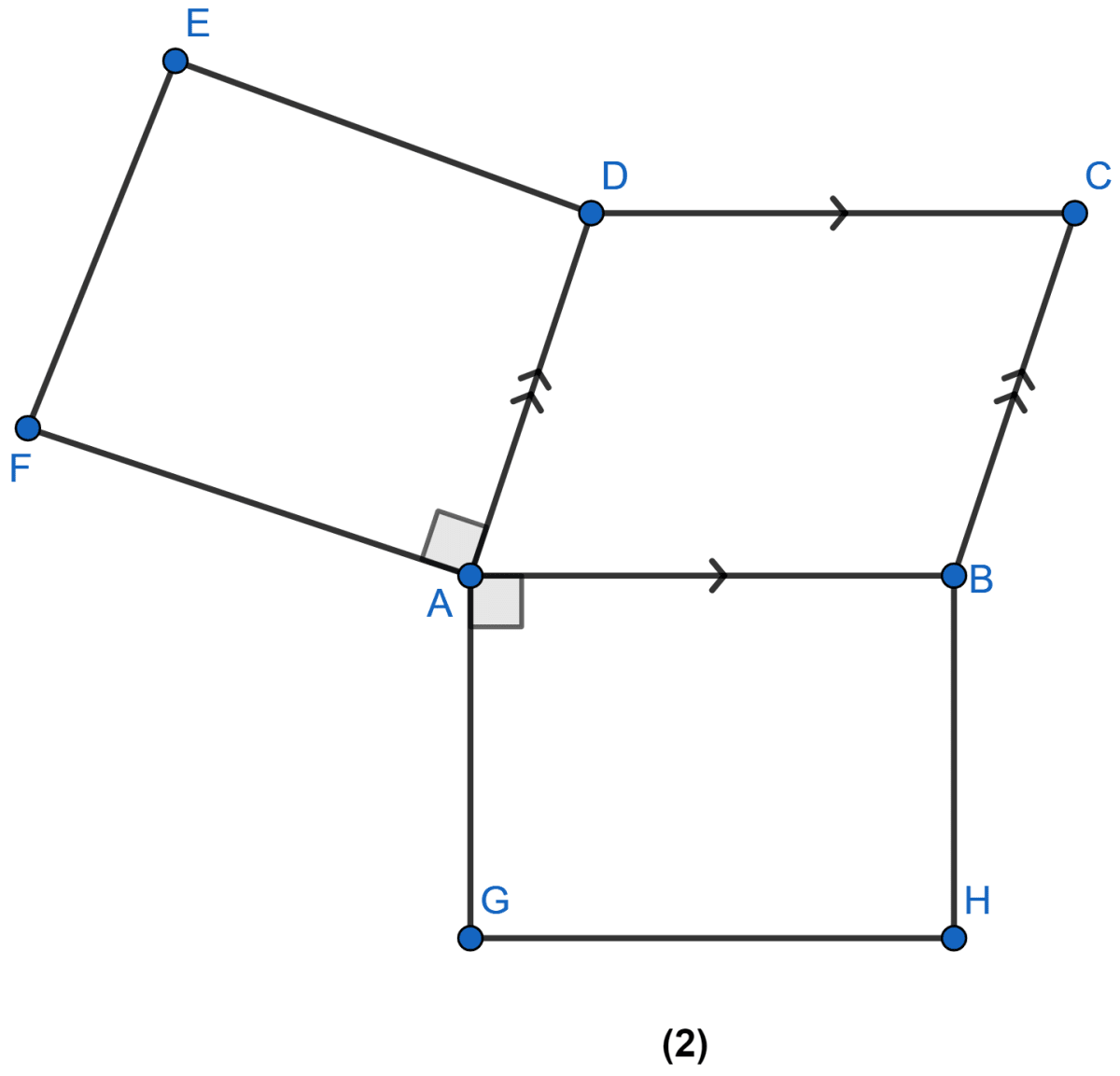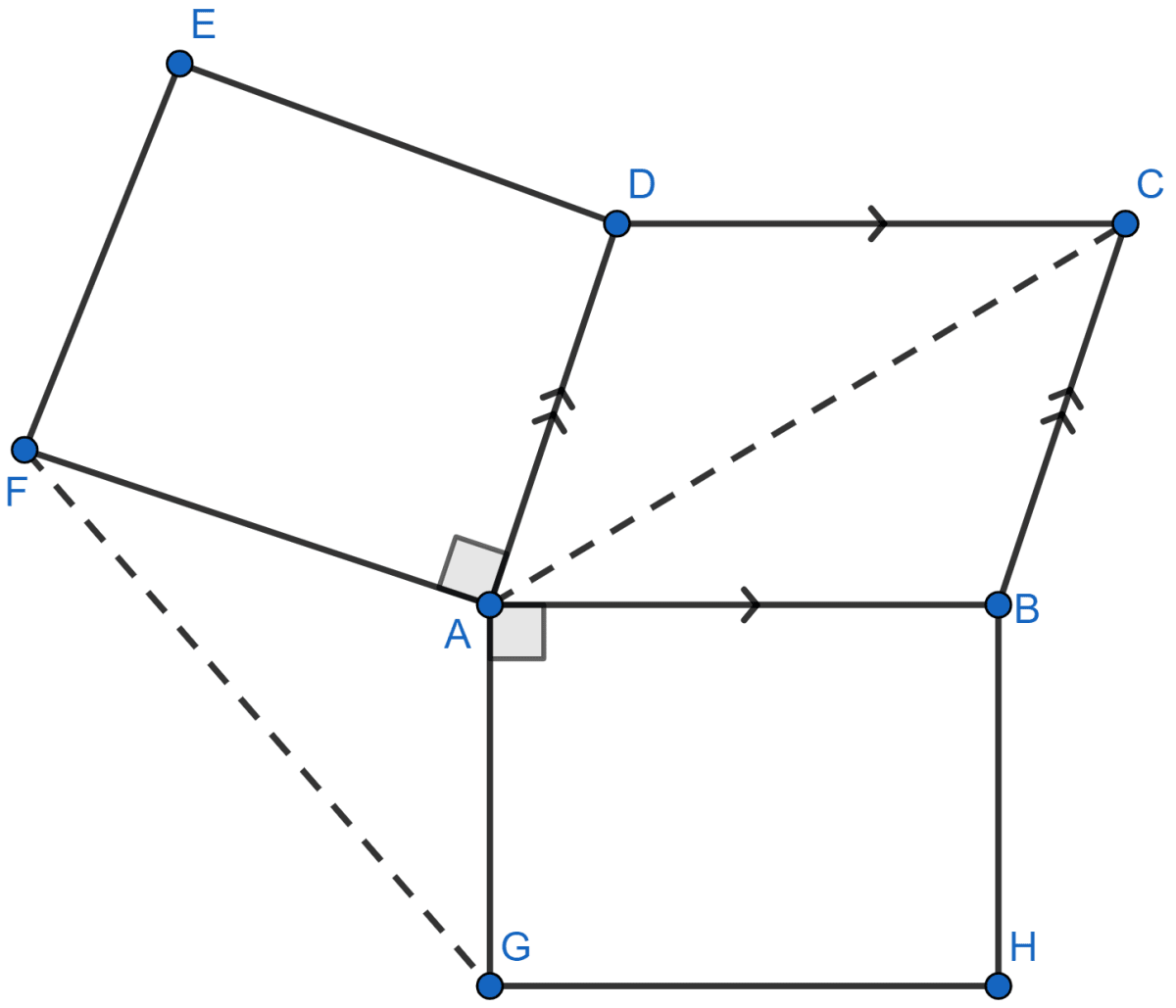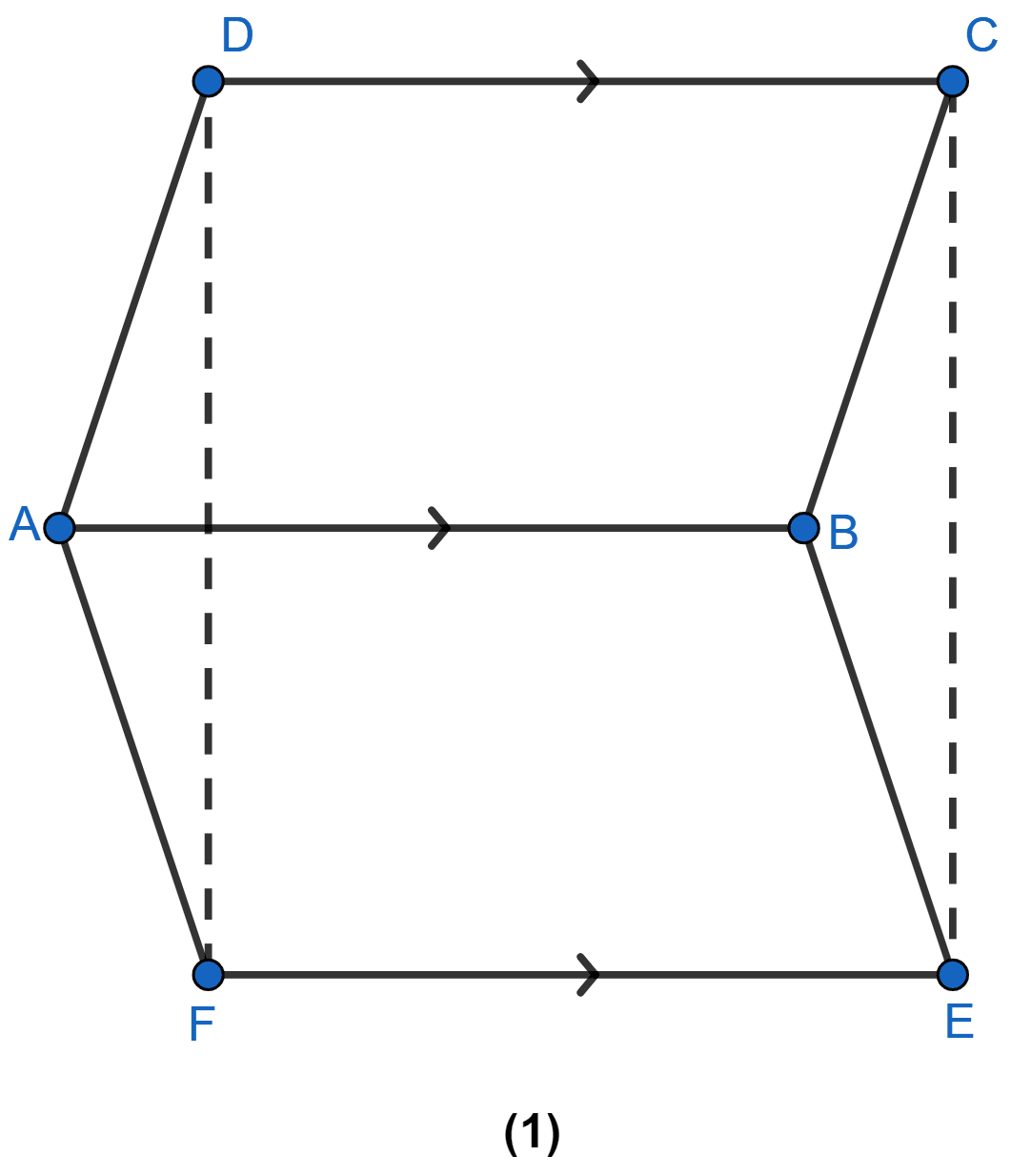Mathematics
In the figure (2) given below, ABCD is a parallelogram, ADEF and AGHB are two squares. Prove that FG = AC.

Answer
From figure,

⇒ ∠FAG + ∠GAB + ∠BAD + ∠FAD = 360° [∵ At a point total angle is 360°]
⇒ ∠FAG + 90° + 90° + ∠BAD = 360°
⇒ ∠FAG = 360 – 90° – 90° – ∠BAD
⇒ ∠FAG = 180° – ∠BAD ………(i)
⇒ ∠ABC + ∠BAD = 180° [Sum of Adjacent angle in || gm is equal to 180°]
⇒ ∠ABC = 180° – ∠BAD ………(ii)
⇒ ∠FAG = ∠ABC [From (i) and (ii)]
In || gm ABCD,
AB = CD and AD = BC.
Since, ADEF is a square,
so, AD = DE = EF = FA.
So, BC = FA.
In ∆AFG and ∆ABC, we have
⇒ AF = BC [Proved above]
⇒ AG = AB (∵ AGBH is a square)
⇒ ∠FAG = ∠ABC [Proved above]
So, ∆AFG ≅ ∆ABC by S.A.S axiom of congruency
∴ FG = AC. [By C.P.C.T]
Hence, proved that FG = AC.
Related Questions
ABCD is a square. E, F, G and H are points on the sides AB, BC, CD and DA respectively such that AE = BF = CG = DH. Prove that EFGH is a square.
In the figure (1) given below, ABCD and ABEF are parallelograms. Prove that
(i) CDFE is a parallelogram.
(ii) FD = EC
(iii) △AFD ≅ △BEC.

ABCD is a rhombus in which ∠A = 60°. Find the ratio AC : BD.
ABCD is a square and the diagonals intersect at O. If P is a point on AB such that AO = AP, prove that 3∠POB = ∠AOP.